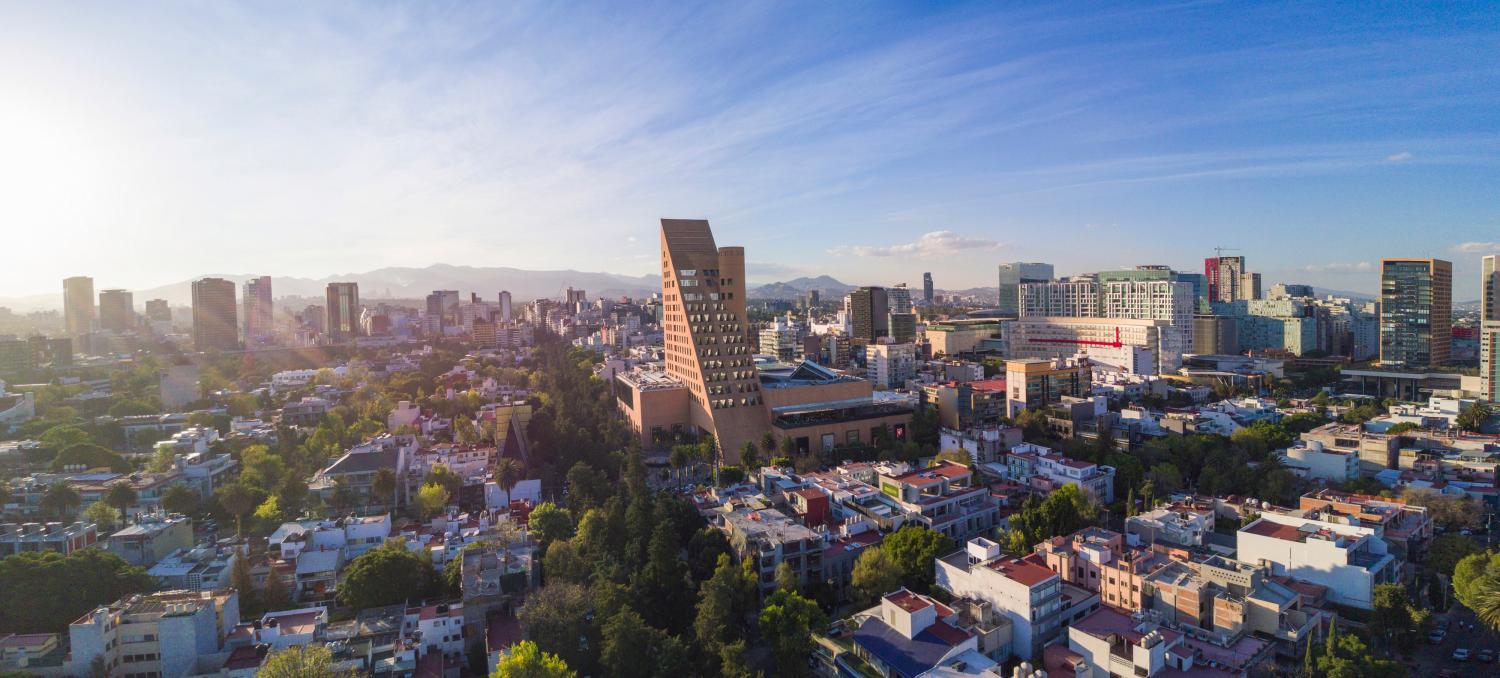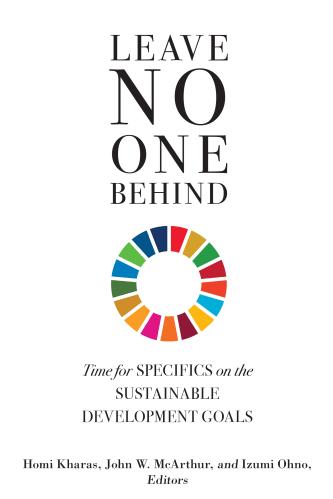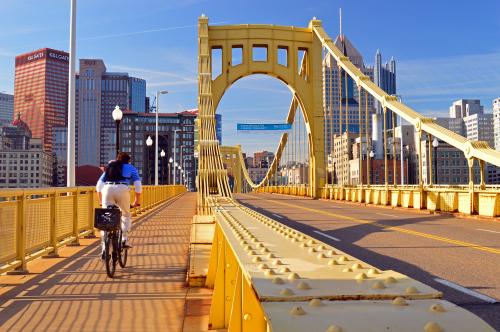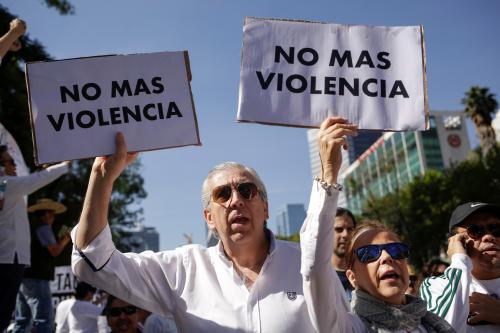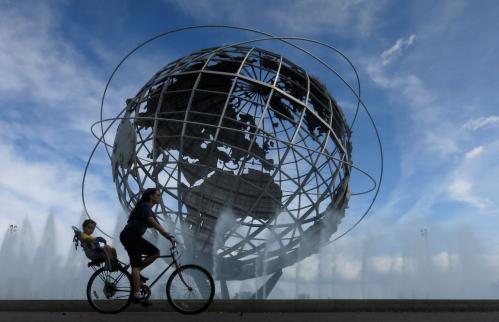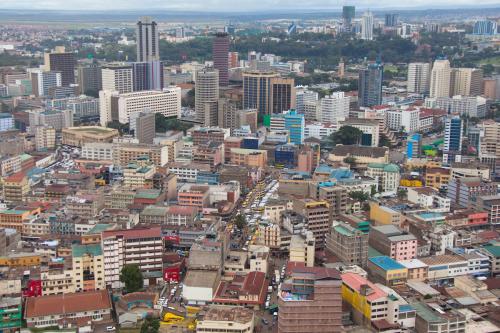Introduction
Around the world, cities are evolving at an unprecedented pace, grappling with profound challenges driven by urbanization, demographics, and climate change. City leaders face extraordinary pressures to manage this growth and implement sustainable development strategies. As United Nations (U.N.) Secretary-General Antonio Guterres recently remarked, “With more than half the world’s population, cities are on the frontlines of sustainable and … inclusive development.”
Global trends of rapid urbanization exacerbate the local urgency for sustainable development. Climate change and migration have very localized effects that require localized solutions. The risk to physical and civic infrastructures, and social cohesion and safety, creates new complexity for local governments. Cities are also where inequality takes on a visible human face, with rich and poor physically intermingling, bound together by place and economic and social relationships.
The local policy environment has never been more complicated. In response, local leaders and city governments are developing more sophisticated methods for planning, measuring the well-being of their citizens and neighborhoods, and assessing their success in delivering needed services and social progress.
Increasingly, city leaders see their priorities for local progress linked to solving global challenges. Cities are finding value in “globalizing their local agenda,” situating their priorities within global policy frameworks and engaging in problem-solving with their global counterparts. This reflects their pragmatism in sourcing and sharing the best solutions and innovations for the challenges they face in a changing international order that challenges international organizations and multilateralism. It also enables cities to leverage new forms of city diplomacy, city networks, and peer-learning platforms. When national governments leave a vacuum of cooperation, cities are often filling the gaps, collaborating and seeking to influence the global policy agenda.
The Sustainable Development Goals (SDGs) are gaining traction as an organizing principle and policy framework for cities. The 2030 Agenda for Sustainable Development, which commits to 17 Sustainable Development Goals (also known as the Global Goals), was adopted at the U.N. by 193 member states in 2015. A grassroots movement is emerging as city governments worldwide are adopting the SDGs as a holistic framework for their local planning and execution.
The 2030 Agenda nominally has a “cities” goal: SDG 11, which calls for “inclusive, safe, resilient, and sustainable” cities. SDG 11 signaled the importance of cities in advancing sustainable development. However, from the perspective of these local leaders, cities are responsible for a much larger range of issues within the 2030 Agenda, including poverty, health, education, housing, safety, jobs, innovation, and air pollution. The timebound outcomes of the SDGs provide an ambitious and common North Star at which to aim, one that encapsulates all the dimensions of development their communities care about.
“Everyone knows the Paris climate agreement,” says Mayor Jan Vapaavuori of Helsinki. “The SDGs are much less well-known, but they may be more important, because they are comprehensive.”
City leadership on sustainable development is exhibited in the widening adoption of an innovation called the Voluntary Local Review (VLR). A VLR is a process in which local governments confirm their commitment to the SDGs and voluntarily assess their progress toward specific targets in the 2030 Agenda. Pioneered in 2018 by New York City, this review takes its inspiration from Voluntary National Reviews (VNRs), the process through which countries report on their sustainable development progress at the U.N. as part of the official follow-up and review process. A VLR enables a city to present a holistic and coherent portrait of its social, economic, and environmental progress, offering a powerful storytelling tool that connects its local strategy to a global agenda. Given the SDGs’ focus on measurement toward specific outcomes, a VLR can also be a tool for strengthening evidence-based policymaking, using data as a means to identify gaps and mobilize new policy, partnerships, and resources. The common frame of reference for the SDGs enables learning and exchange with counterpart cities across the world.
The VLR movement is nascent but gaining momentum. VLRs do not have official status as part of formal SDG follow-up and review processes hosted by the U.N. There is no specific template or official format. Most cities undertake a VLR based on its intrinsic value. The flexibility of the format allows cities to base a VLR on its own capacities, contexts, and level of development and resources.
In this initial stage, the movement has made greater inroads in North and South America, Europe, and Asia. No African city has yet produced a VLR, though several have made commitments to do so. Twenty-two cities have signed onto a declaration promoted by New York City that commits to doing a VLR.
Figure 1. The VLR landscape
As the VLR movement gains attention, this report explores the promise of the Voluntary Local Review as an urban planning tool for advancing sustainable development. It presents a city-specific perspective, one informed by the experiences and viewpoints of cities that have completed or started a VLR (especially those participating in the Brookings SDG Leadership Cities Network) and augmented by a Brookings analysis of seven first-generation reviews.1 The report also proposes innovations that might be valuable for the next generation of VLRs, and raises issues for consideration in scaling the use of the VLR.
SDG Leadership Cities Network
The Brookings SDG Leadership Cities Network, a cohort of 17 cities, enables cities that are in the vanguard of applying the SDGs locally to share experiences, solve problems, and identify best practices of local SDG leadership. This global community of practice of senior government officials launched in April 2019 at the Bellagio Rockefeller Center and met again in November 2019 in Mexico City. Facilitated and supported by the Brookings Institution, this group is demonstrating the centrality of city leadership to achieving sustainable development. Their innovations, tools, and lessons provide the basis for other cities to successfully pursue the SDGs. It will meet twice more in 2020. Participants in the SDG Leadership Cities Network include:
- Accra, Ghana
- Bristol, United Kingdom
- Bogota, Colombia
- Buenos Aires, Argentina
- Durban (eThekwini Municipality), South Africa
- Hawaii, United States
- Helsinki, Finland
- Los Angeles, United States
- Madrid, Spain
- Malmö, Sweden
- Mannheim, Germany
- Mexico City, Mexico
- Milan, Italy
- New York City, United States
- Orlando, United States
- Pittsburgh, United States
- Yokohama, Japan
-
Footnotes
- The VLRs analyzed include those from Bristol, Buenos Aires, Helsinki, Kitakyushu City, Los Angeles, Mannheim, and New York City.


